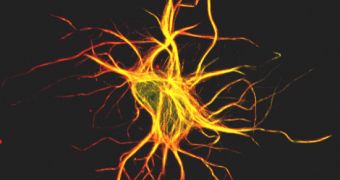Having a super-memory has nothing to do with genetic manipulation or secret drugs, medical experts say. They say that some humans are born with specific wiring in their brain, which allows them to remember not only the most important happenings in their lives, but also the lesser ones, experienced decades ago. This condition is not regarded as a disease, but simply as a very rare anomaly in specific portions of the brain. And while some people would naturally assume that having this ability is very beneficial, some could just as easily say that no one would want to live under the influence of some bad memories they experienced when they were little.
In light of new findings in the field of memory storage, which show that brain cells in the frontal cortex can store bits of information for as much as one whole minute, before transferring them to long-term memory, it comes as no surprise to anyone that the neurons in certain brains could by chance evolve the ability to store all the knowledge they come across during a lifetime. In addition to this ability, some of the people with near-perfect memories can at a whim recall the events that happened on a specific day in the past.
The truth is that researchers who conduct studies on the human brain never seize to be amazed by the puzzling properties our main “processor has.” And understanding exactly how memory is formed, stored and transmitted from one area to another has been a long-standing goal of the scientific community. Some argue that the size of the brain would theoretically allow for the preservation of all the data a person's receptors (eyes, ears, nose, skin, taste) gather during the course of their lifetime.
Some argue that the complex nature of neurons in the brain is responsible for such massive storing capacities. They claim that even if one neuron could be associated with 1 bit of electronic information, the amount of knowledge a mind stores vastly surpasses that of the most groundbreaking hard drive.
They say that this has everything to do with the 3D architecture of the brain, where neurons “fuse” together to form intricate ensembles, which can store information by endlessly transmitting it between themselves. The caudate nuclei and the temporal lobe are usually considered responsible for the amount of information each person ca store, as well as for the ease with which they remember important information.

 14 DAY TRIAL //
14 DAY TRIAL //